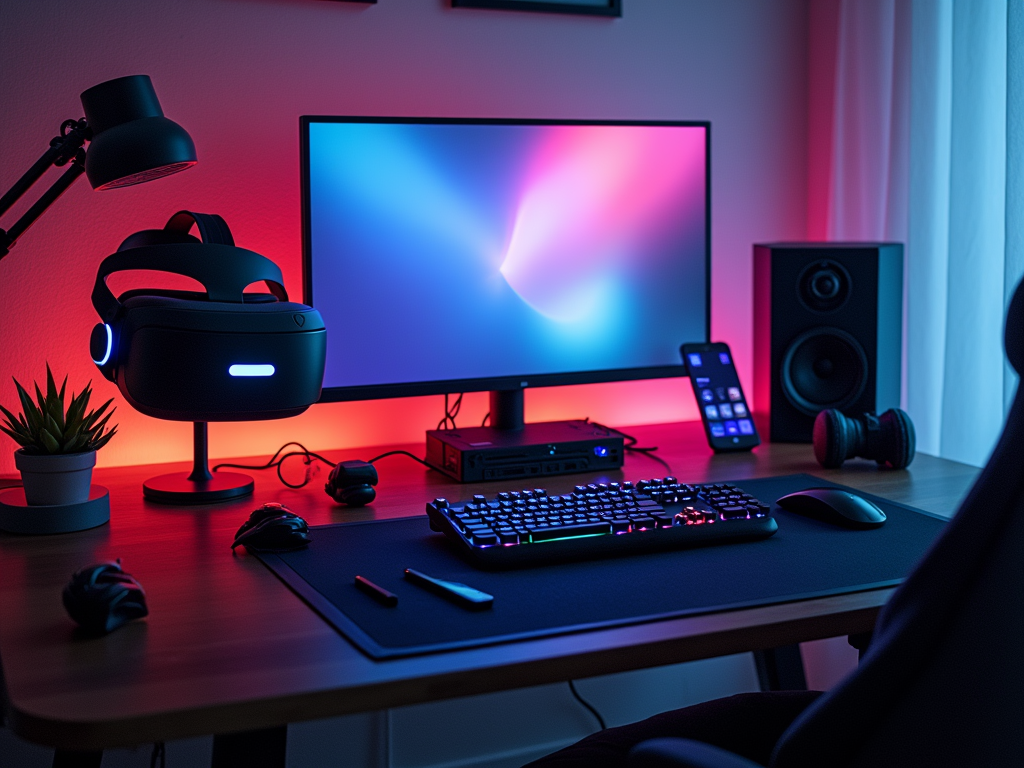Starting a VR real estate marketing company in Dubai can be an incredibly lucrative venture, especially given the city’s rapidly evolving real estate market and the increasing demand for innovative marketing solutions. This article outlines the essential steps to establish and grow a successful VR marketing business in Dubai, ensuring you tap into the rising interest in virtual experiences among property buyers and investors.
Understanding the Dubai Real Estate Market

Before embarking on this entrepreneurial journey, it is crucial to understand the dynamics of the Dubai real estate market. The Emirate is known for its luxury properties, diverse architecture, and modern amenities, attracting international buyers and investors. Consequently, the market is highly competitive, necessitating innovative marketing strategies. A VR marketing approach can differentiate your services by offering immersive experiences, enhancing client engagement and satisfaction. Moreover, the local regulatory framework and market trends will inform your business strategy, guiding you to cater effectively to your audience’s preferences. Thus, conducting thorough market research is foundational for creating a roadmap for your business.
Creating a Business Plan

Having a robust business plan is key to launching any successful venture, including a VR real estate marketing company. Your business plan should encompass various elements that cover the following aspects:
- Executive Summary: Outline your business objectives, mission statement, and target market.
- Market Analysis: Provide insights from your research on competitors, consumer behavior, and industry trends.
- Marketing Strategy: Specify how you will promote your VR services and attract clients.
- Operational Plan: Detail the logistics of your virtual experiences, including software, hardware, and staffing requirements.
- Financial Projections: Include estimated startup costs, revenue forecasts, break-even analysis, and funding sources.
By clearly defining these elements, you create a blueprint for your business, guiding you through the startup phase and helping secure potential investments or loans.
Acquiring the Right Technology
The technological aspect of a VR real estate marketing company cannot be overlooked. To deliver high-quality virtual reality experiences, you need to invest in the appropriate tools and software. Consider the following key components:
- VR Hardware: Invest in high-end VR headsets (like Oculus or HTC Vive) and compatible computers with sufficient processing power.
- 3D Modeling Software: Acquire programs like SketchUp or Blender to create detailed property models.
- Virtual Tour Software: Utilize platforms such as Matterport or EyeSpy360 for creating engaging virtual tours.
- Hosting Solutions: Ensure you have reliable and fast servers to host your VR content efficiently.
- Licensing: Confirm that you have appropriate licenses for any software or hardware you choose to utilize.
Considering the rapid developments in VR technology, staying updated and investing in upgrades as necessary will keep your offerings cutting-edge and competitive.
Building Your Portfolio and Client Base
To establish a presence in the market, it is vital to create a compelling portfolio that showcases your VR marketing capabilities. Start by partnering with real estate agents and property developers to produce sample virtual tours demonstrating the potential of your services. Here are steps to build your portfolio and attract clients:
- Collaborate: Work closely with real estate professionals to create engaging content.
- Showcase Variety: Include various property types (luxury homes, commercial spaces, and off-plan properties) to demonstrate versatility.
- Market Awareness: Attend real estate exhibitions and local events to network and promote your services.
- Utilize Online Platforms: Showcase your VR experiences on your website, social media, and real estate listing platforms.
- Solicit Feedback: Collect testimonials from satisfied clients to enhance your credibility.
Having a strong portfolio can significantly boost your reputation and establish trust with potential clients.
Marketing Your VR Real Estate Services
Once your business is set up and you have started building your portfolio, it’s time to implement effective marketing strategies. Here are some approaches to consider:
- Content Marketing: Create blogs, videos, and case studies that educate your audience about the benefits of VR in real estate.
- SEO Strategies: Optimize your website for search engines to attract organic traffic related to VR real estate services.
- Social Media Engagement: Utilize platforms like Instagram, LinkedIn, and Facebook to showcase your virtual tours and reach a broader audience.
- Email Marketing: Develop a mailing list and send newsletters featuring new listings and VR projects.
- PPC Advertising: Invest in targeted online ads to drive traffic to your website and generate leads.
Effectively promoting your services helps attract clients and strengthens your brand presence in the real estate sector.
Conclusion
Starting a VR real estate marketing company in Dubai requires careful planning, an understanding of technology, and an effective marketing strategy. By creating a solid business plan, acquiring the right tools, building a portfolio, and actively promoting your services, you can successfully establish your company within the dynamic real estate landscape of Dubai. The key to success is not only providing innovative VR experiences but also forging strong relationships with real estate professionals and continuously adapting to market trends.
Frequently Asked Questions
1. What initial investment is required to start a VR real estate marketing company?
The initial investment varies greatly depending on the technology and marketing strategies you choose, but you can expect costs for hardware, software licenses, and marketing efforts to start from a few thousand to tens of thousands of dollars.
2. Is it necessary to have a background in real estate to start this business?
While having a background in real estate may be beneficial, it is not essential. A strong understanding of VR technology and marketing strategies can be sufficient.
3. How can I find clients for my VR real estate services?
Networking with real estate agents, attending industry events, leveraging social media, and maintaining a strong online presence can help you attract clients.
4. What technologies are crucial for creating virtual tours?
You will need VR hardware (headsets, powerful computers), 3D modeling software, and virtual tour platforms to create and display your content effectively.
5. How can I differentiate my VR marketing services from competitors?
Offering tailored VR experiences, exceptional customer service, and keeping your technology up to date can help you stand out in a competitive market.
